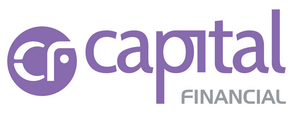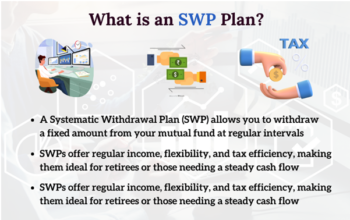Accounting is the foundation of any organisation’s financial stability and is even more critical for nonprofits. Despite their commitment to admirable causes, nonprofits frequently need help with money management and charitable endeavours, which is where the accounting firm London, Ontario, comes in.
This article will discuss the best accounting practices specifically designed for charitable organisations. You’ll know how to confidently handle your financial difficulties by the time it’s over.
Nonprofit Accounting: What Is It?
Nonprofit accounting is a unique method for nonprofits to plan, document, and report on their financial situation. Unlike for-profit companies, nonprofits emphasise the accountability component of accounting. They adhere to guidelines and protocols to maintain accountability to their contributors and donors.
How is Non-Profit Accounting Different?
Donors to your nonprofit organisation have the authority to impose limitations on their contributions, and grant funders want to ensure that their money is used for the programs that have been agreed upon. Because of these limitations, you must ensure supporters are satisfied with how their money is used. For this reason, nonprofit organisations use a kind of accounting called fund accounting.
Thanks to fund accounting, nonprofit organisations can divide their finances into several groups or ‘funds’ to stay organised and only spend money on the things for which it is intended.
Best Accounting Tips for Non-Profit Organizations
-
Divide Up the Money
We don’t put all our money into one pot and hope for the best when managing a home. Instead, we set aside money for groceries, electricity, entertainment, savings, rent, or a mortgage. This makes it easier to monitor our finances and make wise spending choices.
Similarly, segregated funds can be advantageous to nonprofit organisations. Nonprofits might set up distinct accounts for various funding sources and initiatives. For example, donations for a particular project or program should be kept separate from general running finances.
This strategy will assist NGOs in upholding transparency, allowing you to precisely track the distribution and use of funds within your nonprofit.
-
Accrual Accounting
Accrual accounting is a financial discipline essential to nonprofits’ efficient financial administration. This accounting method records transactions immediately, independent of the cash flow, in contrast to cash accounting, which requires that transactions be recorded only when money exchanges hands.
This method provides a more accurate representation of the organisation’s financial health, as it records transactions when they occur, regardless of when the money changes hands. In other words, it will help them make strategic decisions by providing information about resources and commitments that might take time to appear in their bank accounts.
-
Continue to Provide Transparent Reports
Transparency is not just a decision in the nonprofit sector but a moral requirement. Because of their consistent dedication to social good, nonprofits must be transparent about their financial operations.
Numbers are only one aspect of transparent reporting. It’s a promise kept to contributors, stakeholders, and the general public. By freely sharing financial reports and information, NGOs can strengthen their commitment to their goals and foster confidence. Donors will be able to observe firsthand how their money is being used.
-
Accurate Budgeting
One of the most crucial accounting procedures for nonprofits is budgeting accuracy. In the complex dance of nonprofit management, budgeting accuracy is impossible to undervalue. Nonprofits can create comprehensive yearly budgets to balance their financial resources with impact goals.
Accurate budgeting will assist NGOs in overcoming potential financial obstacles and guaranteeing that resources are allocated as efficiently as possible, increasing their effectiveness and reach.
-
Create a System for Donor Management
Every donation can make a difference for a nonprofit. A strong donor management system is a compass in this situation, pointing the organisation toward long-term effects. A well-deployed donor management system will help you
- increase engagement,
- expedite communication,
- and eventually, enhance fundraising efforts
by recording contribution history and managing donor profiles and preferences. Start by deciding on an accounting and donor management program that meets your company’s needs. To ensure smooth data flow, link it with your current databases.
-
Respect Grant Compliance
Securing grants to support significant initiatives is common in the complex world of nonprofit financial operations. Receiving these grants entails a duty of grant compliance.
Nonprofits ought to abide by the grant regulations set forth by the national government. This entails
- completing project deadlines,
- providing accurate and timely financial reporting,
- and allocating funds precisely as directed.
By following grant compliance, nonprofits can meet the grantor’s expectations and cultivate a relationship based on dependability and trust.
-
Create Sturdy Internal Controls
Establishing strong internal controls is similar to laying a strong foundation for your nonprofit’s financial structure. These controls include procedures like
- systematic reviews,
- frequent reconciliations,
- and task segregation.
Strong internal controls reduce the risk of fraud, preserve the integrity of NGO accounting processes, and guarantee that financial transactions are carried out accurately. They will also provide a barrier against your company’s economic weaknesses, freeing you to concentrate on accomplishing your admirable goal.
-
Outsourcing Accounting Operations
Most nonprofits manage various tasks, making maintaining accurate accounting operations extremely difficult. While employing full-time accountants may seem like a good idea, the overhead, benefits, and salary costs can burden already scarce resources.
The concept of outsourcing enters the picture here! Outsourcing from accounting firm London, Ontario function will simplify
- bookkeeping,
- taxes,
- reporting,
- and financial management.
By collaborating with an accounting firm London, Ontario, on nonprofit accounting, you may focus your internal resources and abilities on the primary goal.
Conclusion
Accounting for nonprofits is a unique area of finance. Knowing the fundamentals will make it easier for your nonprofit organisation. If your executives still handle your accounting duties, consider outsourcing your accounting to a firm’s professionals. They will help apply internal controls and best practices, resulting in more prudent financial management.




